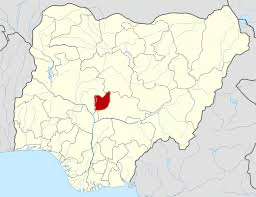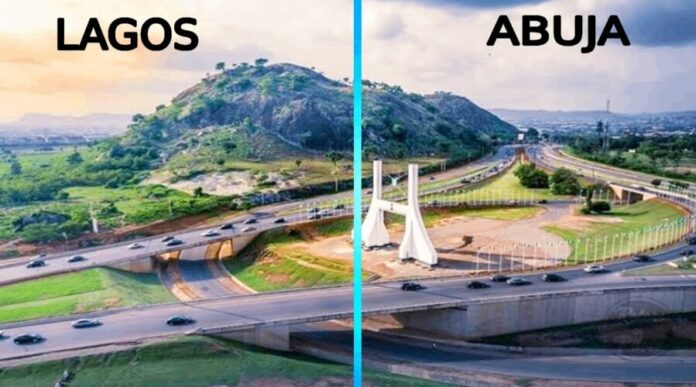If you have ever met anyone who comes from Abuja to Lagos, they always tell you that Lagos is a madhouse.
That, is a fact not up for debate.
With the hustle and bustle of Lagos, the constant battle for daily bread and frequent dose of rogbodiyan that comes with being a Lagosian, I can’t blame them. It’s hard to be normal when you live in a jungle.
Given that Abuja has a slower pace than Lagos and life there is a little more peaceful – not considering the insurgency in the state – I see where they are coming from. But for a state that is a second-hand capital of Nigeria, they really need to reduce the noise.
Both cities were recently ranked amongst the most expensive cities in Africa by the Economic Intelligence Unit (EIU), with Lagos ranked fourth and Abuja second.
RELATED: Lagos: The Jungle
What is Elitism?
Elitism generally is referred to as the segregation of a select group of people with a certain ancestry, intrinsic quality or worth, higher intellect, wealth, specialized training or experience, or other distinctive attributes.
Nigeria focuses more on the wealth part, as the gap between the rich and the surviving is glaring. I mean, how many people can fly their daughter to Italy for some Gelato? Or buy 3 Ferraris for their kids in one day?

Although their lifestyle is foreign to many of us, movies like The Bling Lagosians, Fifty, Chief Daddy, New Money, Royal Hibiscus Hotel, and The Wedding Party have allowed us to catch a glimpse of what it looks like.
READ: Top 10 Beach Resorts in Lagos
The 1% of the 1%
Another name for the elites in Nigeria.
You will usually find them living in mansions in Asokoro, Ikoyi Bourdillon, Banana Island, and most recently, Lagos Atlantic city. They throw lavish parties, import pizza from London, go on frequent vacations to the Caribbean, and can escape into the comfort of a helicopter whenever there is traffic gridlock.
The 1% of the 1% do not know what it means to travel economy class; they always fly first class when their private jets are stuck in the carwash.
They also single-handedly fund their children and grandchildren to Ivy League schools like Harvard and Cambridge. Include frequent shopping in Paris, New York, Amsterdam, or Toronto, and they remind us of Nigeria’s first billionaire, Candido Da Rocha, who always sent his dirty clothes for laundry in Britain.
To be a part of this category of people, your annual income needs to be at least N4.6 Billion. So, if you were thinking you are an elite, calculate and find out.

Lagos vs Abuja: How it all began
Lagosians have always held the position of elitism. From the days of Lugard, history has told of the bling life in Lagos. The highrise buildings in Ikoyi, the lavish parties, the imported foods, clothes, furniture, and even staff.
Early Lagosians pride themselves in being pioneers of politics and culture. Being a colonial state, they were privy to the first wave of westernization. Lagos had the best economy and standard of living. Import and exports were the order of the day, with the city’s proximity to the sea.
There were whites living amongst Lagosians, so it became easier for people to copy their mannerisms and claim a form of pseudo-superiority.
Abuja, on the other hand, was an unknown nation that lucked out because of its position on the map. It sits right in the middle of Nigeria, therefore the ruling government decided to move the capital there in 1991.

After the civil war in 1970, Yakubu Gowon, the million head of state at the time, started considering a move to take the capital of Nigeria away from Lagos because of its proximity to the coast and being easily accessible by the sea in the event of an attack.
On the 12th of December 1991, Abuja became the capital of Nigeria and has since then undergone massive changes.
From good roads to better planning, better social amenities, a slower pace of living due to population density, and job opportunities, people began to migrate to Abuja, as expected.
Today, Abuja is a mega city.
SEE:
- The 10 Best Resorts in Abuja for 2023
- Cheap flights from Abuja to Lagos
- Top 10 Hotels in Gwarinpa, Abuja
- Places to Visit in Lagos
Old Money, New Money
In Lagos, there is no dispute that the majority of the elite come from old money. These families have a lot of generational wealth after taking advantage of the new Nigeria or the colonial period.
Many of the elites in Lagos are not original Lagosians, but they have settled in Lagos because of the easy access to resources and information. These families have worked in the early days, made some firm investments, and are able to transfer and preserve wealth for generations.
In Abuja, we have the same.
Majorly northerners, the state smells of old money. Families such as Danjuma and Saraki are pioneers who have worked hard to preserve wealth for their generation.
Another good example is Aliko Dangote, whose great-great uncle Chief Al-Hassan Dantata, was one of the wealthiest kolanut traders during the colonial period.
New money, however, has sprung up in both cities, but especially in Lagos. With the advent of tech bros, Lagos’s elitism is on another level.
SEE: Serviced Apartments in Abuja
Lagos vs Abuja: In conclusion…
We really cannot tell which city has the medal of elitism. Lagos is overwhelmingly fast-paced and more open, compared to Abuja which has a slower flow and is shrouded with religion.
One thing is certain; the movers and shakers of this nation dwell in these two cities.





